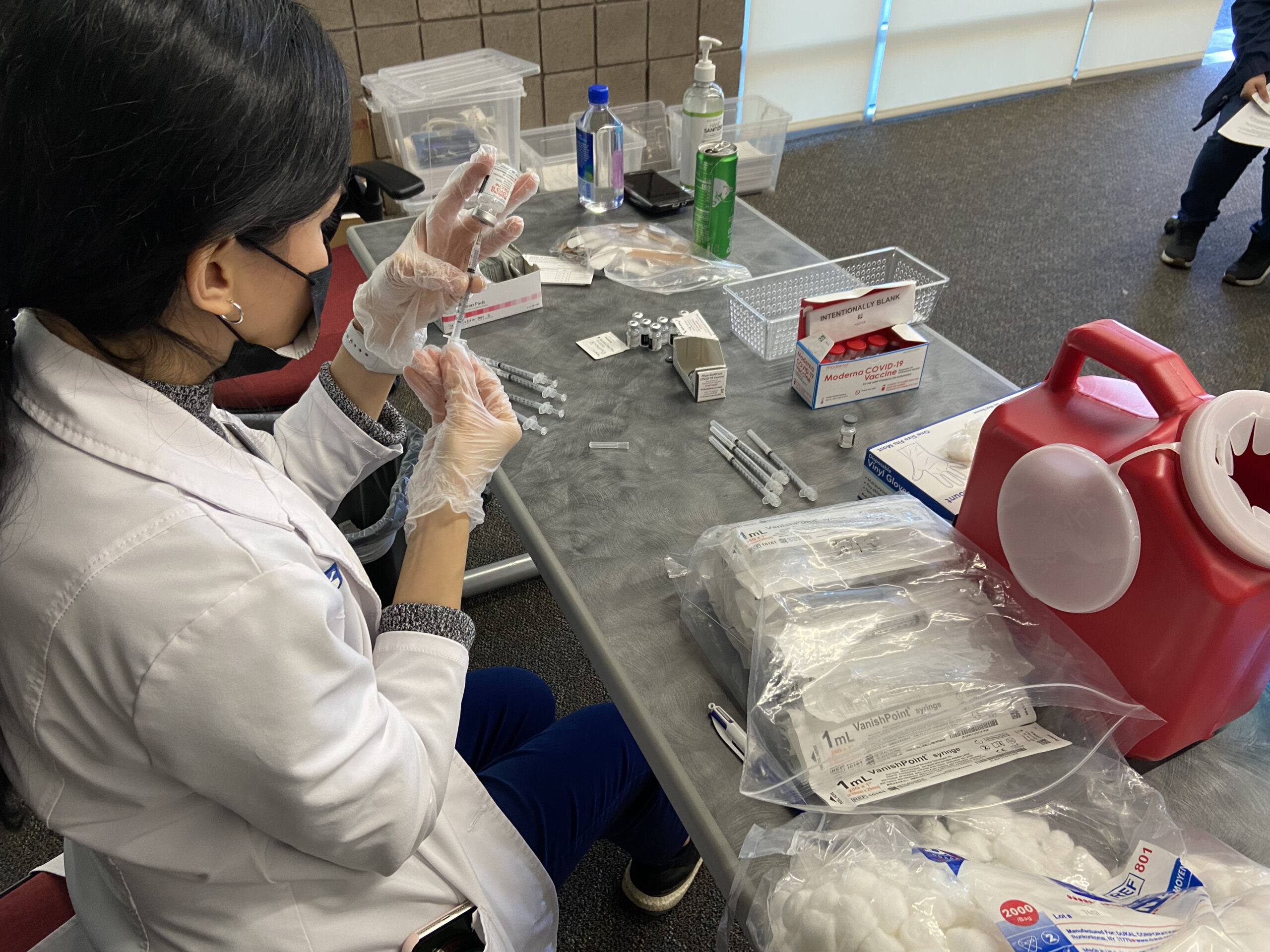By: Dayzsha Lino, Staff Reporter

Chief of CSUDH campus police Carlos Velez and Lieutenant David L. Hall gave a presentation to faculty members and students on Wednesday Oct. 9 in LSU Ballroom B to discuss safety practices on campus.
The event, “Stay Safe DH,” addressed safety concerns relevant to those here at CSUDH and other schools across the country. Topics included active shooter situations, emergency evacuations, and mental health issues.
One of the concepts discussed at the presentation was Run-Hide-Fight, which is a method that encourages students in the event of an active shooter to either get away from the situation as quickly as possible, find a safe place to hide, or fight back if necessary. Lt. David L. Hall told students and faculty that if they were ever in a situation where they could not run or hide from an active shooter, then their only option would be to fight back.
“If you’re faced with the attack, then you’re going to have to fight,” Lt. Hall said. “Not every location that you’re in is perfect to hide. Your first and best option is always to escape the problem; and if you can’t do that, then you’ll have to go through the cycle of trying to figure out what the best thing to do in that case is.”
Chief Carlos Velez addressed emergency preparedness, and said that the emergency preparedness program here on campus focuses on what to do before, during, and after an emergency. “Obviously our primary goal in emergency preparedness is to preserve life and property,” Chief Velez said, “but we also want to be able to minimize the duration and the impact of a disaster should [one] occur on campus.” Chief Velez suggested that in the event of an emergency evacuation, students should remember to take all of their valuable items with them and never use any of the elevators.
Chief Velez also mentioned the Emergency Operations Center, which is where staff can go to receive additional training on how to manage emergency situations. Staff can also volunteer to be Floor Wardens and train to help evacuate individuals in emergency situations.
The mental well-being of students is another big issue when it comes to campus safety. Janie Macharg, Director of Student Health and Psychological Services, said that there has been an uptick in students having angry outbursts in class, and urged students and faculty members who see students having such outbursts in class to contact Student Psychological Services.
“More often than not, we are able to do some assessment and work out a plan of action that would end up turning well,” Macharg said.
Marcharg also said CARE (Campus Awareness Response and Education), which is a program that provides a number of psychological resources to students struggling with issues such as housing and food insecurity, or students who may be a threat to themselves or others.
“Our goal is to find a way to provide them with resources that can help,” said Marcharg.
Women’s issues were brought up in the presentation. Mayra Romo, a Victim’s advocate, presented CAPE (Center for Advocacy, Prevention and Empowerment) which is a center that helps victims of sexual harassment, stalking, etc. accomplish personal and academic goals. Elizabeth Schrock who is a Title IX officer talked to students and faculty about a site called Make-A-Report, where students can report instances of discrimination, sexual harassment, stalking, and domestic abuse.


